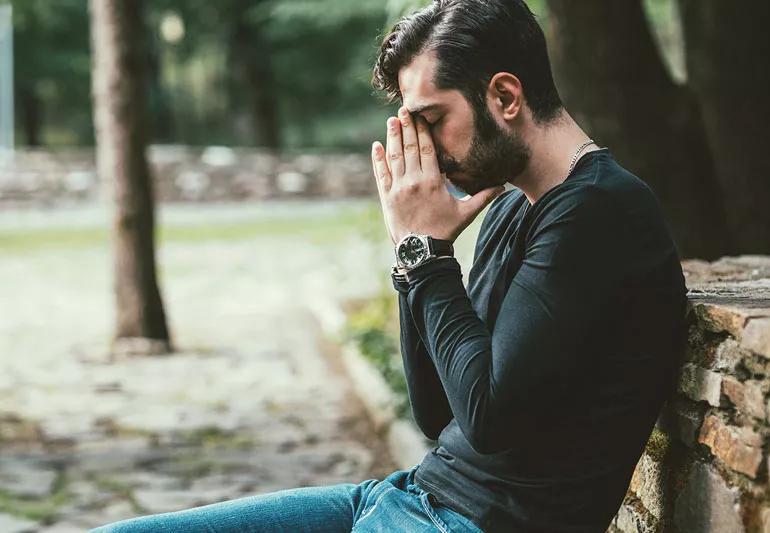New study shows protecting the young from harm also does harm

Image content: This image is available to view online.
View image online (https://assets.clevelandclinic.org/transform/8c4380f6-d522-43bf-8cad-b4f9b3e5e386/genZmentalHealth-502908786-770x553_jpg)
Generation Z aged man stressed on park bench
Members of Generation Z (that’s the cohort of people born from the mid-1990s to the early 2000s) are the most likely of all generations to report poor mental health, according to a new report.
Advertisement
Cleveland Clinic is a non-profit academic medical center. Advertising on our site helps support our mission. We do not endorse non-Cleveland Clinic products or services. Policy
Psychologist Scott Bea, PsyD, believes what stresses today’s young people out could be a product of what their parents experienced while they were very young.
“This is a group whose parents were experiencing 9/11 when they were young ― 6 years of age or younger. Our world really changed and we became more sensitive to threat,” Dr. Bea says. “During this time, the news media exploded as more and more people wanted news and we started engaging in more safety behaviors.”
Because of the inescapable presence of threats in today’s society ― from what we see on TV to the safety drills our children practice in school ― we’ve developed a generation that has been strongly protected, he explains.
Hearing about every event in the news can actually make us over-estimate our risk, Dr. Bea notes.
And sometimes it’s even the little stuff (say, conflicts with friends or at school). When parents fight too many battles for their kids, Dr. Bea points out that it doesn’t allow children to develop the coping skills they need to deal with adversity.
Just like our bodies develop a biological immunity through exposure to threats, our psychological system can also develop immunity through exposure.
If we’re not allowing young folks to solve problems … to develop active coping strategies, we’re robbing them of those opportunities. And while we’re doing that, in a benevolent way and for a good cause, we may be inadvertently handicapping them at the same time.
On the other hand, Dr. Bea says the report also shows that while Generation Z might be more likely to report poor mental health, they’re also more likely than older generations to be aware of their mental health and seek out help when necessary.
Advertisement
“We know more about mental health now, that it’s a biological matter,” he says. “This knowledge takes away the morality of it. Instead of asking, ‘Did I do something wrong?’ or a parent wondering, ‘Did I parent wrong?’ we now know a lot of this is biological, which is making it safer for people to seek help. We also have better information on where to get help and that help is effective.”
Advertisement

Sign up for our Health Essentials emails for expert guidance on nutrition, fitness, sleep, skin care and more.
Learn more about our editorial process.
Advertisement
Connecting with others, going for a walk or focusing on sleep quality can help more than you might realize
You may not always notice it, but your mental health has just as big of an impact on your well-being as your physical health
Rethinking your Mondays might make the ‘Sunday scaries’ a thing of the past
Get to know the resources they have on and off campus, including their friends
College is a time of big transitions, intense stress and major lifestyle changes
Wishing you made a different decision can help you learn from your mistakes
This term from TikTok encourages positive affirmations around ‘luck’
Start a conversation, gently ask questions and offer help without judgment
Type 2 diabetes isn’t inevitable with these dietary changes
Applying a hot or cold compress can help with pain
Pump up your iron intake with foods like tuna, tofu and turkey